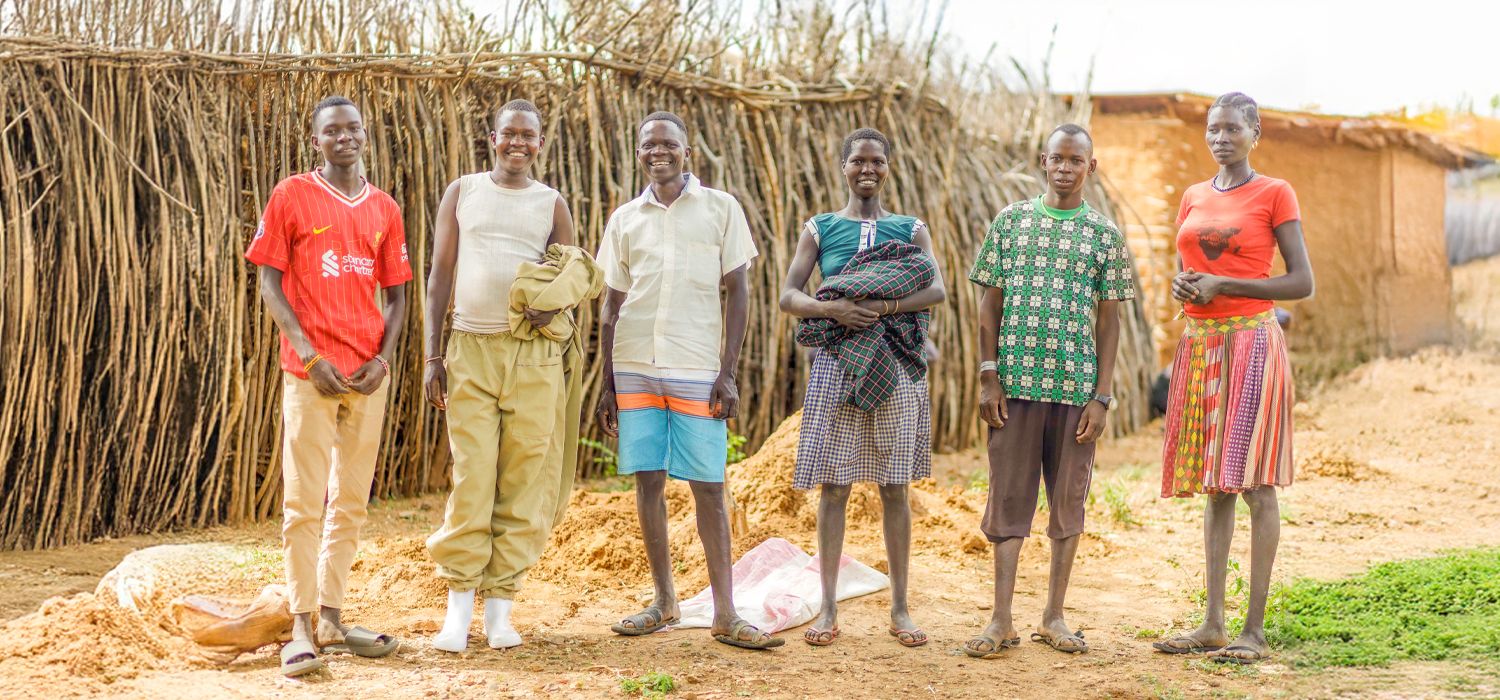 Stories
Stories
October 24, 2025 • 3 min read
In Karamoja, north-eastern Uganda, young people are redefining opportunity through beekeeping. With training and mentorship from GOAL Uganda’s Markets for Youth Programme, implemented in partnership with the Mastercard Foundation, youth like Paul Loctucukana are transforming traditional honey harvesting into structured, profitable enterprises. The Apurichino Apiary Youth Group in Moroto District now produces high-quality honey for the local market and saves collectively to grow their business.

The Markets for Youth Programme supports young people in Uganda to strengthen their skills, access financial services, and build sustainable businesses. Implemented by GOAL Uganda in partnership with the Mastercard Foundation, the programme focuses on agribusiness, financial literacy, and entrepreneurship, empowering youth to create employment opportunities and drive local economic growth.
From Passion to Purpose
In 2023, Paul Loctucukana, a youth from Napedo village in Musugo Parish, Moroto District, was identified by Prince Willis Investment Limited, a youth skilling partner under the Markets for Youth Programme. Like many in his community, Paul had practiced beekeeping as a hobby, using traditional methods with limited income.
That changed after attending a GOAL-supported training in Moroto town, where he learned about modern beekeeping, honey value addition, marketing, financial literacy, and agronomy. “The training opened my eyes to new ways of running beekeeping as a business,” Paul said.
Inspired by this knowledge, Paul mobilized eight youth groups, each with around 30 members, to form a consortium engaging in different income-generating activities. Among them, the Apurichino Apiary Youth Group in Musugo Parish, with 20 members (14 women and 6 men), became one of the most active. Each member managed three local beehives, producing honey individually until Paul introduced the idea of collective production, filtration, and packaging. The group began selling professionally processed honey in bulk, marking a turning point in their enterprise.
Building a Sustainable Enterprise
In November 2024, the group harvested 110 liters of honey. Their main market lies in Moroto town, where demand for clean, well-packaged honey continues to grow.
Beekeeping has not only provided income but also strengthened essential business skills among members, including marketing, savings management, and leadership. It has also promoted environmental conservation through the preservation of local vegetation.
In early 2025, the group received 50 modern beehives from Home-Based Care, a local NGO. While the new hives have yet to produce their first harvest, members are confident they will significantly increase future yields.
“We are excited about the modern hives,” said Zakaria Iriama, the group’s chairperson. “They will help us produce more and improve the quality of our honey.”
Leadership, Challenges, and the Road Ahead
The group has built strong governance structures to ensure accountability and cohesion. “We have a constitution that guides our operations,” explained Zakaria. “Members who miss group activities without valid reasons pay a fine of UGX 5,000 (approx. €1.22).” The group’s leadership team of eight includes three women serving as treasurer, key holder, and mobilizer, reflecting their commitment to inclusive participation.
However, challenges remain. Poor road networks often delay transportation, affecting access to better markets. “Sometimes we lose customers because we can’t deliver on time,” Zakaria said. Security of group savings is another concern. “We keep our money in a secure cashbox with three padlocks, each held by a different member, but it’s not a long-term solution,” he added.
Despite these constraints, the youth remain determined. With modern hives expected to increase output, they plan to scale up production and diversify into livestock farming. Their long-term goal is to reach export standards and bring Karamoja honey to international markets.
“Our dream is for every member to own a permanent home and educate their children in good schools,” Zakaria said with pride. “With the right skills and teamwork, we believe we can take Karamoja honey to the world.”

